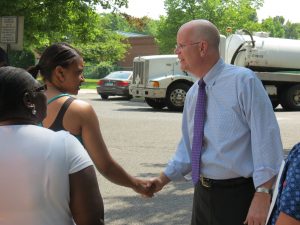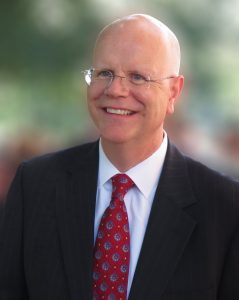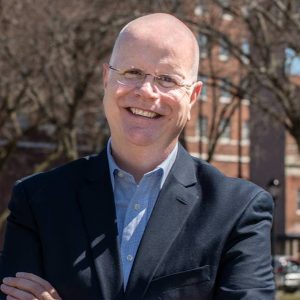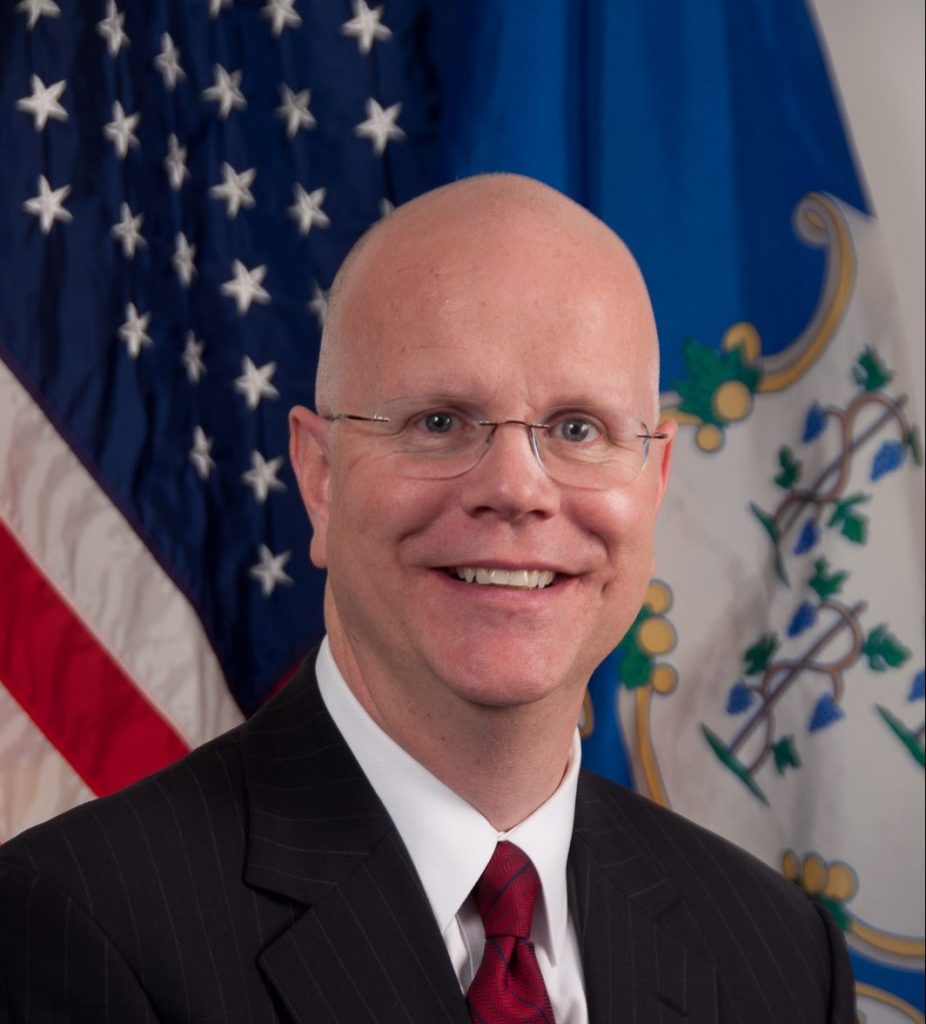State Comptroller Kevin Lembo loves all that’s great about Connecticut – and has rolled up his sleeves to help fix the rest
By Carol Latter
For nearly a decade, Kevin Lembo has been Connecticut’s State Comptroller. Essentially, he is the state’s “chief fiscal guardian,” keeping a close eye on its financial status, serving as administrator of its electronic accounting system, and coordinating the payroll and health care for its working and retired public employees.
Born in Paterson, N.J., he spent many years as an independent advocate in New York State, finding ways to improve the healthcare system for the benefit of patients and families. Lembo helped design and implement a home care program that kept seniors from prematurely – and often permanently – being admitted to long-term care nursing facilities. A member of the LGBTQ community, he also served as program director of an AIDS education, prevention and primary care program.
After coming to the Nutmeg State, he was appointed the first state healthcare advocate. He later became Assistant Comptroller and in 2010, was elected Connecticut’s State Comptroller. He’s been repeatedly re-elected to serve in that role, most recently in November 2018.
Advocacy groups have given him top marks for his work to promote public access to information about the state’s financial dealings. But his job involves more than money. He continues to make the case for quality, affordable healthcare, and for preventative care initiatives that both improve patients’ well-being and reduce healthcare costs. In collaboration with the University of Connecticut, he spearheaded “Man Up,” a statewide effort to help men (and women) enjoy longer, happier lives.
His path to Connecticut – and public office – was a winding and somewhat unexpected one, but he couldn’t be happier with his career, his adopted state, and a family life that includes three children. He currently lives in Guilford with his husband, Charles Frey.
Lembo spoke with Connecticut Voice magazine about what brought him here, why he plans to stay, and the challenges that the LGBTQ community – and the state as whole – must still work to overcome.

CV: What was your path to becoming state comptroller?
KL: I began interacting with government during the early days of the AIDS epidemic and that interaction was fueled with people becoming ill and dying, and the government being unwilling to respond. The government wouldn’t talk about it, the New York Times didn’t print it, and the president would never mention it.
With equal parts advocacy and lobbying, we did some work around identifying what the needs were in the community and what funding was needed, and began petitioning the government for that.
After a while, I got a little tired of banging my head against the wall. I thought, ‘If I got on the inside and started pulling doors open for others to come in, then maybe we could make a difference.’ I ended up doing work in New York, mostly on the public health and healthcare delivery side.
I came to Connecticut to work for then-Comptroller Nancy Wyman and I fell in love with Connecticut. As the state’s former healthcare advocate, I ran the state agency that advocated for and helped patients when insurance companies denied their claims. It was really heady work. That was about 20 years ago, but never in my wildest dreams did I think I’d ever run for office. I wasn’t even my high school class president. I just was not that guy. But after a lot of years of helping to develop public policy and helping elected officials do that, the deck chairs began to move, and in 2010, I decided to run for state office. I’m starting my third term as state comptroller, which really does feel impossible.
CV: What do you love most about your job?
KL: I still would contend that I’m an advocate even in this role, for taxpayers or for patients in the healthcare space, and for transparency, good public policy, and good economic policy.
Combined with that, it’s a good place for a data nerd. I like to use the numbers to make the case for social change. It’s a pretty good place to be.
It’s work that I love. I spent months looking at a possible run for governor. I decided not to. Political people don’t understand when someone says I’m not going to climb to the next highest level available. I happily reverted to a re-election run.
There are lots of opportunities [for improvement and change in Connecticut], and all you need to do is look for the bills that are coming through the legislature. In this session, among other things, the state is looking at pharmaceutical pricing and trying to wrangle what have been ever-increasing prices for pharmaceuticals. We’re also national leaders on the creation of a possible public healthcare option.
In addition, I’ve been doing more transparency work – it’s a passion of mine inside government. In 2011, Connecticut got a ‘C’ grade by national standards on transparency. Since then, we’ve got an ‘A’ or an ‘A-minus,’ up from a ‘C.’ We’re always trying to author and pass more transparency bills. I’m happy to dive in and support legislative initiatives.
The new administration is incredibly collaborative and I’m appreciative of, and excited about, the possibilities.

CV: How has being part of the LGBTQ community influenced your life and career?
KL: I think back to being a young gay man and not seeing at that point, in the ’70s and early ’80s, any example of what it was to be a fully participating person in society. Most examples of gay people were hairdressers, Broadway entertainers, or serial killers. It was a terrible list of opportunities. None of us wants to wear the mantle of being a role model. But whenever I go out to high schools or colleges, I always find a way to come out to the crowd. I know that at the back of auditorium there may be a little queer kid who’s looking for someone who relates to them.
In government and the policy-making law process, nobody can speak for us [the LGBTQ community]; we have to speak for ourselves. And even then, we can only do that narrowly. The diversity of the community is pretty significant but having diversity at the table makes for a better product in the end.
We’re very lucky to live in Connecticut – not that we don’t have to be on guard. But I think we are lucky to have statewide officials who are sensitive to the LGBTQ community and their issues.
We have a real fire wall against many of the worst instincts of this present White House, and so we will always do our best to defend not only the LGBTQ community but also those who are defined as ‘other.’ The attorney general [William Tong, the first Chinese-American attorney general in U.S. history], in particular, is very supportive. We are grateful for his willingness to stand up for people who are defined as ‘other,’ whether it’s African, Asian, gay, or even female. We have a female Secretary of the State [Denise Merrill-D] and Lieutenant Governor [Susan Bysiewicz-D]. But in our collective power, across our differences, we really can do great things in protecting each other and our community.
CV: What are some important issues that still need to be addressed?
KL: The trans community, in particular, needs more support and possibly more legal protection than they already have. It’s really an evolving issue and we need to stay on top of that.
Young gay people, especially those who find themselves in the foster system or out and alone, are not well-served. They have some unique needs. My husband and I are adoptive parents and we have foster children. There need to be more families that engage in the foster process. We all need to step up so there are places for young people to go, and resources for them, regardless of their race, gender, ability, or disability. They need families who can identify with people like them.
Suicide is another huge problem for LGBTQ youths. We want to promote the idea of reaching out to them and letting them know that there are role models, that there are resources, that we are extending a hand to them, and that we are ready, willing, and able to help.
We need to have zero tolerance for bullying and targeting. In addition to dealing with the bullies themselves, we really have to make people who are in charge of buildings – like school principals and superintendents – personally and professionally accountable for how they fail to abide by the law to protect these kids.
We need to stop giving lip service to addiction and mental health issues. We need to support and give funding to those things. When people look at our legacy, we hope people won’t look at our press releases but at our budgets to see what we really believe in. Not what we talked about, but what we paid for. If we’re not putting our money where our mouths are, then shame on us.

CV: What are some of the specific challenges faced by the transgender community, and how can we as a society make things better?
KL: The most important thing is to welcome and accept transgender people, without reservation, in any setting, and to educate those around us. One of the things that we do as a family – our oldest kids are 31 and 34 – we go to Family Week in Provincetown [which this year is July 27 to August 3]. It attracts LGBTQ families from all over the country and from all over the world. It’s not only uplifting for the families who attend – it does a lot to promote awareness, especially in people who may not be part of that community.
Our little one is now 19. He’ll say, “My name is Jordan, and my pronouns are … .”
There was this moment where I realized that, generationally, this was going to take care of itself. We’ll take care of it as human beings. I’m very hopeful that those who can’t or won’t or refuse to understand will eventually flush themselves out of the system. As for the next generation, I have high hopes for them.
We want to support transgender youth, and we also want to support their parents. I think most parents aren’t really shocked when it occurs [when young people reveal they’re transgender]; they often will have a knowing sort of sense, but may think, “Well, I’ll just wait for the right time to talk about it.”
My advice would be, “Believe your children when they tell you something.” But then I think you need to not slam on the gas or the brakes. You need to go slow. They [the children] had time to process it, and you need time to process it. As parents, you need the resources to help you process it. Just know that it’s the same kids that you loved yesterday – they’re still going leave their clothes on the floor, they’re still going to be annoying or wonderful – but you will still love them anyway.
CV: Why is it important for young people to get involved in advocating for the LGBTQ community?
KL: There’s a saying that if you’re not at the table, you might be the entrée. Whether it’s running for student government or running for the local school board or attending school board meetings and asking questions, that is the beginning of getting involved. I think there are lots of great young people, straight and LGBTQ, who have reengaged or engaged for the first time or are just feeling their way, so they’re becoming part of a much larger effort. We are already that community that we want; we just need to fix it up, straighten it up. And if not, stuff will be done to us.
CV: We hear a lot in the news that people are leaving Connecticut. What’s your take on that?
KL: I wasn’t born here, so the fact that I live here wasn’t an accident of birth. I came to live here because of the values of this state, and the laws and policies and administration of this state. We have some great economic challenges and reinvention opportunities. Those make me excited; they don’t scare me off. If people just want to complain, “The state is x, y or z, and so I’m going,” then I say, “Go.” But if you love all that’s great about this state, then roll up your sleeves and get to work. If you don’t like the fiscal policy, just engage, and we can have a conversation about it. It’s a great state and a smart state. We’re very lucky to live here.
Job number one is always to get our own house in order and great strides have been made over the last eight years to correct the sins of the past. No one likes it when we say, “This is how we got here.” But if we don’t understand the past, we won’t understand how to fix it. That’s got to be step one. Then we have to make the decisions that are needed to put us on the right and strongest footing. We have to think innovatively about who we are and what are our strengths are. Get off the “woe is me” kick.
We need more smart young people inside government. We have more of that now than we did, but we still need more. Trans is still a huge part of that.
One of the things I’m perpetually concerned about is new workers who may be inclined to leave Connecticut. What do they want? If they say, “We need good infrastructure, a good transportation system, and high-speed Internet, and we need to live in urban areas,” we have to believe them, and act on it. If you address those things and get them thinking about the other strengths we have as a state, then we can keep the workforce here. If I can keep a young smart person in Connecticut until they fall in love and want to settle down and raise a family, then we’ve got them.
We know what a great place this is to raise a family. It’s the middle spot – their 20s – where they think we may not be as hip as some other places, but there’s nothing we can’t fix. We have never taken full advantage of the power of place – our position between New York and Boston – and we need to leverage and exploit that position. What can we do to set things up, so that technology and cargo comes through us? We’ve got clean, smart, data-driven businesses in insurance and other industries. We need to build on those and build the rings of the supply chain and ancillary supports that surround the central hubs of those economic centers. I’m pretty hopeful and enthusiastic about what I’m seeing as part of the new administration and I’m committed to working as a partner to get all that done.







More Stories
Make It Here, Just As You Are
Queer Joy and Queer Resilience
The Final Word: Embracing Differences